
Moritz Liebmann, born on 25 July 1853 in Schleusingen, died there on 18 January 1935 and was buried at the Jewish cemetery. He led his business house at the market 4.
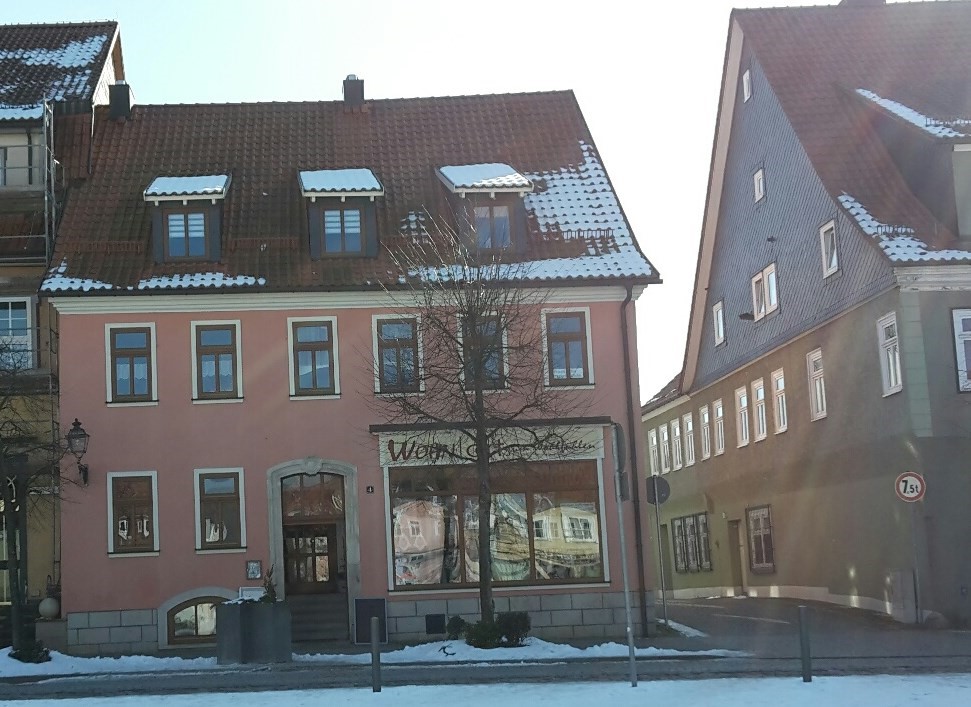
Photo: The renovated commercial and residential building Markt 4 by Moritz Liebmann today, (Collection: Kerstin Macher)
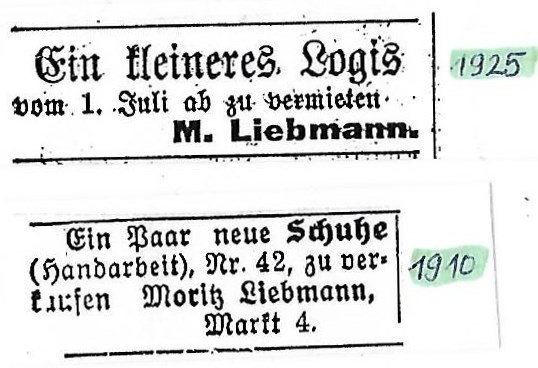
Photo: Announcements by Moritz Liebmann in the "Henneberger Kreisblatt" of 1910 and 1925
In 1937 Justin Liebmann sold the house of his uncle Markt 4, 4a and Poststraße 1 for 18.000 RM to a Schleusinger family as an heir.
Already in August 1921 Clara Lambrecht moved her haberdashery to that of Moritz Liebmann.
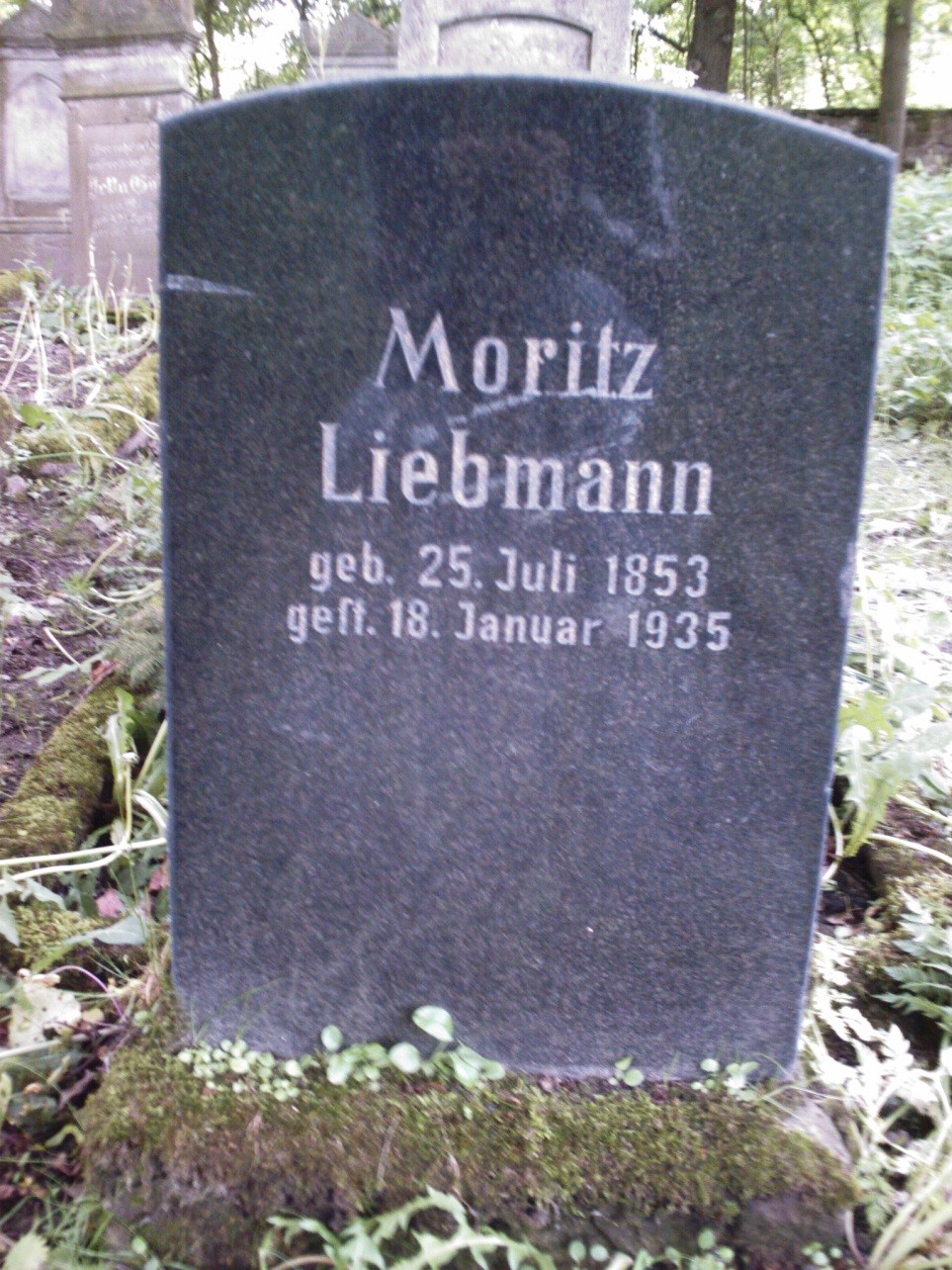
Photo: Gravestone at the Jewish cemetery (Collection: Kerstin Macher)
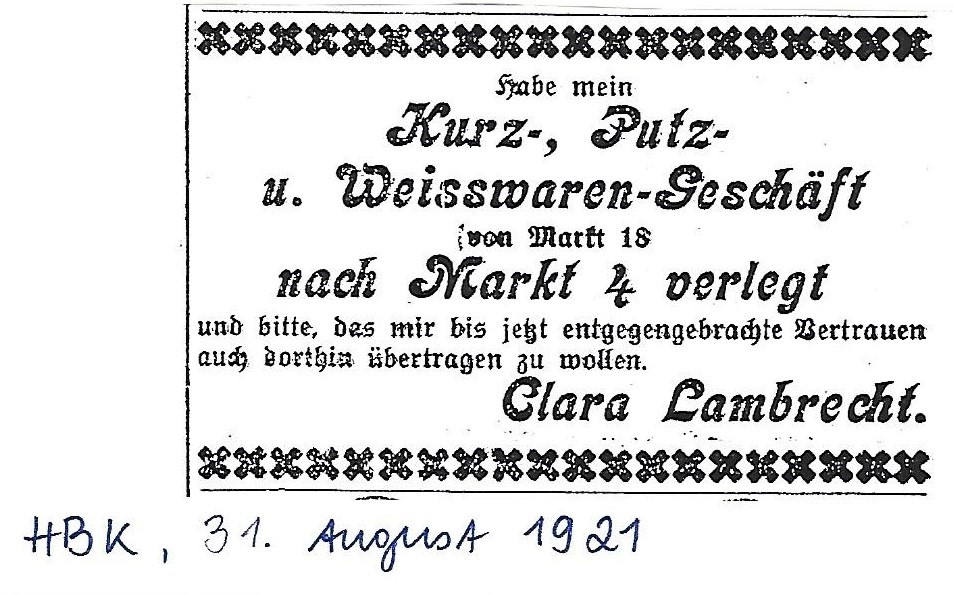
Photo: Advertisement by Clara Lambrecht in the "Henneberger Kreisblatt".
His nephew Justin Liebmann, born November 5, 1889 in Schleusingen, lived with his wife Elly, a gentile, and their son Walter Liebmann, born March 9, 1910, in Erfurt. Justin was arrested during the Reichspogromnacht and imprisoned in the Buchenwald concentration camp from 10 November 1938 to 10 December 1938. On 2 February 1945 he was deported from Leipzig to the Theresienstadt ghetto, where he was liberated by the American army and registered as a survivor in Erfurt. After the end of the war, he took over the position of administrator of former Jewish properties and died on 27 July 1954 in Erfurt.
An ancestor of Moritz Liebmann, the postman Liebmann Daniel, eldest son of Daniel and Deborah Jacob, asked the Schleusinger magistrate for the granting of civil rights already before 1815. That he had the unrestricted support of the magistrate and the district administrator can be seen in his actions during various military marches in the years around 1807. During the Napoleonic campaigns from 1806 to 1813 French and allied troops often crossed the Henne-berger Land. In the months before the Battle of Leipzig Napoleon set up his troops in Thuringia and Franconia. Extensive supplies of natural products to thousands of soldiers also led to a shortage of food and fodder in Schleusingen.
Loverman Daniel created a secret magazine with hay and oats for the city and did not demand the slightest compensation for it, showed himself "excellent against city poor [...] mild and good". It should not remain unmentioned that the district administrator published his thanks in the daily newspaper whereby an honour of this kind was unique. Due to his merits Liebmann and his family were also later granted privileges, as for example the permission of the marriage of his daughter Rahel Liebmann with the merchant Louis Mayer from Schwarza and their right of establishment in Schleusingen. But with the death of Liebmann Daniel (before 1823) a time of uncertainty began for the widow Regine and her eleven children. In the end, she was allowed to keep her husband's house, which is due to her committed appearance and tenacity.
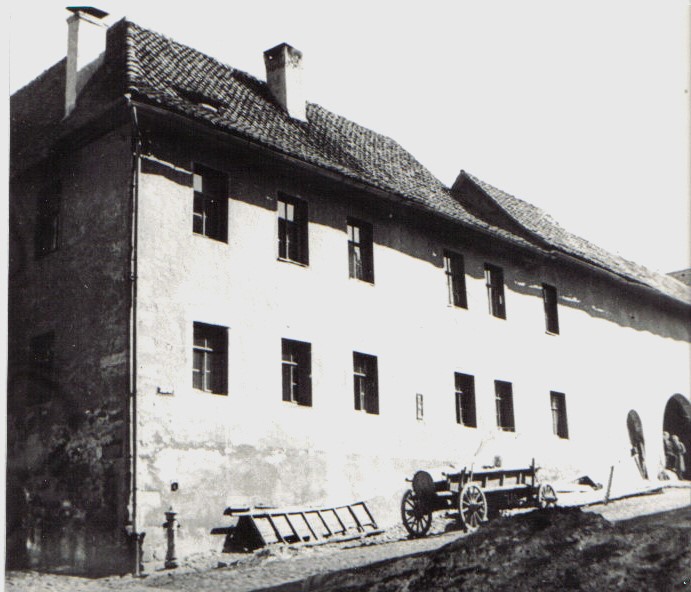
Photo: The old post office (built 1436) in Schleusingen (Collection: Hans Schulz)
Liebmann Daniel was employed here as a postman.
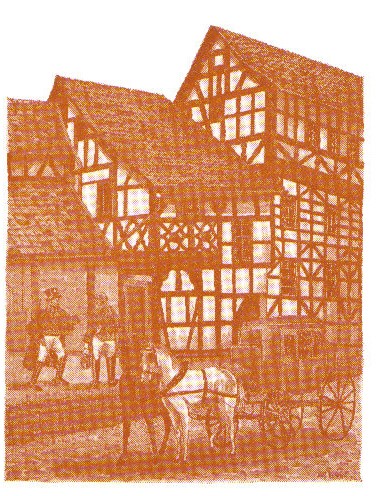
Photo: The old post office (built 1436) in Schleusingen (Collection: Hans Schulz)".